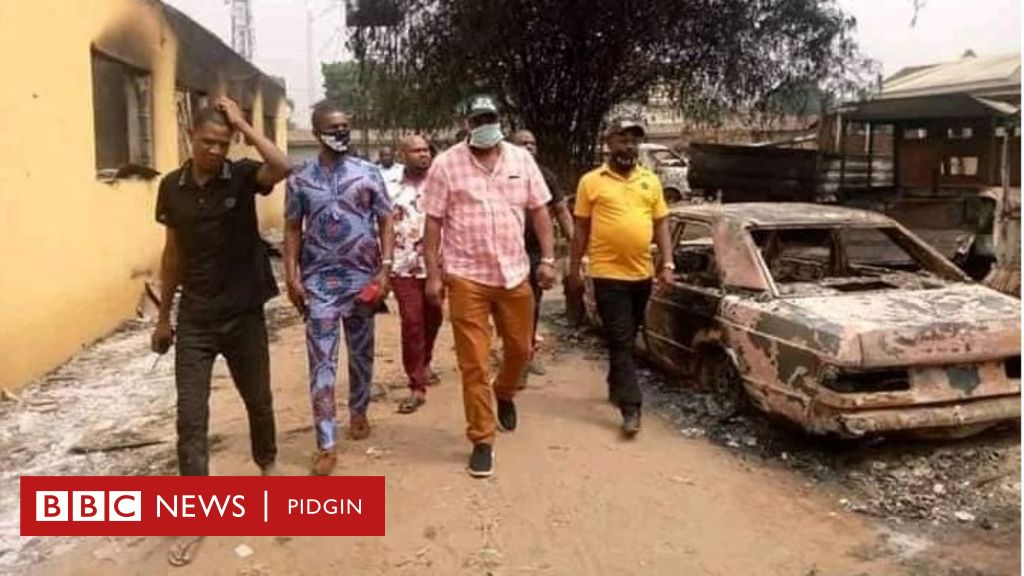Abia State Unrest: Soldiers Arrest Residents In Revenge Attacks
Is Aba, the commercial heart of Abia State, teetering on the precipice of chaos? A surge of violence and unrest has gripped the city, leaving residents in fear and raising concerns about the future of this vital economic hub.
The recent spate of attacks and retaliations has painted a grim picture of escalating tension. Gunmen ambushed and killed soldiers, triggering a wave of arrests and alleged assaults by military personnel on civilians. The Abia State government, desperate to quell the unrest, has placed a hefty bounty on the heads of those responsible for the soldiers' deaths. This cycle of violence threatens to destabilize the region and undermine the already fragile peace.
| City | Aba |
| State | Abia |
| Country | Nigeria |
| Key Events | Killing of soldiers, retaliatory arrests and assaults, government bounty on perpetrators, political defections, teacher strikes, low voter turnout, and ongoing security concerns. |
| Reference | Premium Times Nigeria |
The killing of five soldiers in Aba sparked immediate outrage and a swift response from the government. The N25 million bounty underscores the gravity of the situation and the authorities' determination to bring the perpetrators to justice. However, the subsequent reports of military reprisals against residents raise serious questions about human rights and the potential for further escalation. Are these actions justified, or do they risk fueling the very cycle of violence they aim to suppress?
Beyond the immediate crisis, Aba faces a multitude of challenges. Political realignments, with thousands defecting from the All Progressives Grand Alliance (APGA) to the Social Democratic Party (SDP), signal a shifting political landscape and potential instability. Teachers, frustrated by unpaid minimum wages, threaten strikes that could cripple the education system. Apathy and disillusionment are evident in the low voter turnout during recent elections, further highlighting the disconnect between the government and the governed.
Amidst this turmoil, the inauguration of the Geometric Power Plant offers a glimmer of hope. Hailed as a new dawn for Aba and the nation, the project promises to address the crippling power shortages that have hampered economic growth. But will this ambitious endeavor be enough to offset the negative impacts of the escalating violence and social unrest?
The attacks, linked to the destruction of Nnamdi Kanu's family house and the arrest of Indigenous People of Biafra (IPOB) members, further complicate the situation. The separatist movement's activities have long been a source of tension in the region, and the recent events threaten to reignite old conflicts. The delicate balance between maintaining order and respecting fundamental freedoms is being tested in Aba, with potentially dire consequences.
Even seemingly isolated incidents, like the fire at the Aba Power Electricity Limited building, contribute to the overall sense of unease. While the cause of the fire remains undetermined, it serves as a reminder of the fragility of infrastructure and the potential for disruption.
The missing girls, Celine Ndudim and Afiba Tandor, add a tragic human dimension to the unfolding crisis. Their families cling to hope, but the circumstances surrounding their disappearance are shrouded in mystery and fear. This case underscores the vulnerability of ordinary citizens caught in the crossfire of larger conflicts.
Aba, a city known for its entrepreneurial spirit and vibrant markets, is now grappling with a complex web of security concerns, political maneuvering, and social unrest. The future of this crucial economic hub hangs in the balance. The government's response to the current crisis will determine whether Aba can overcome these challenges and reclaim its position as a driving force in the Nigerian economy.
The juxtaposition of the low voter turnout with the vibrant marketplace, where food vendors seem to outnumber voters, speaks volumes about the prevailing sentiment in Aba. The people are preoccupied with survival, struggling to make ends meet in a climate of uncertainty and fear. Their focus is on the immediate needs of their families, rather than the abstract promises of politicians.
The influx of students into Ogbonnaya Onu Polytechnic, formerly Abia State Polytechnic, demonstrates the enduring desire for education and self-improvement. These young people represent the future of Aba and Nigeria. But their aspirations are threatened by the ongoing instability and the lack of opportunities in a struggling economy. Will they be able to realize their potential in a city beset by violence and uncertainty?
The historical context of Aba, from its division into local government areas in 1991 to its current struggles, reveals a city grappling with its identity and its place within the larger Nigerian narrative. The predominantly Igbo population, with its rich cultural heritage and entrepreneurial drive, deserves a future free from violence and fear. The challenge now is to find a path towards peace and stability that allows Aba to flourish once more.
